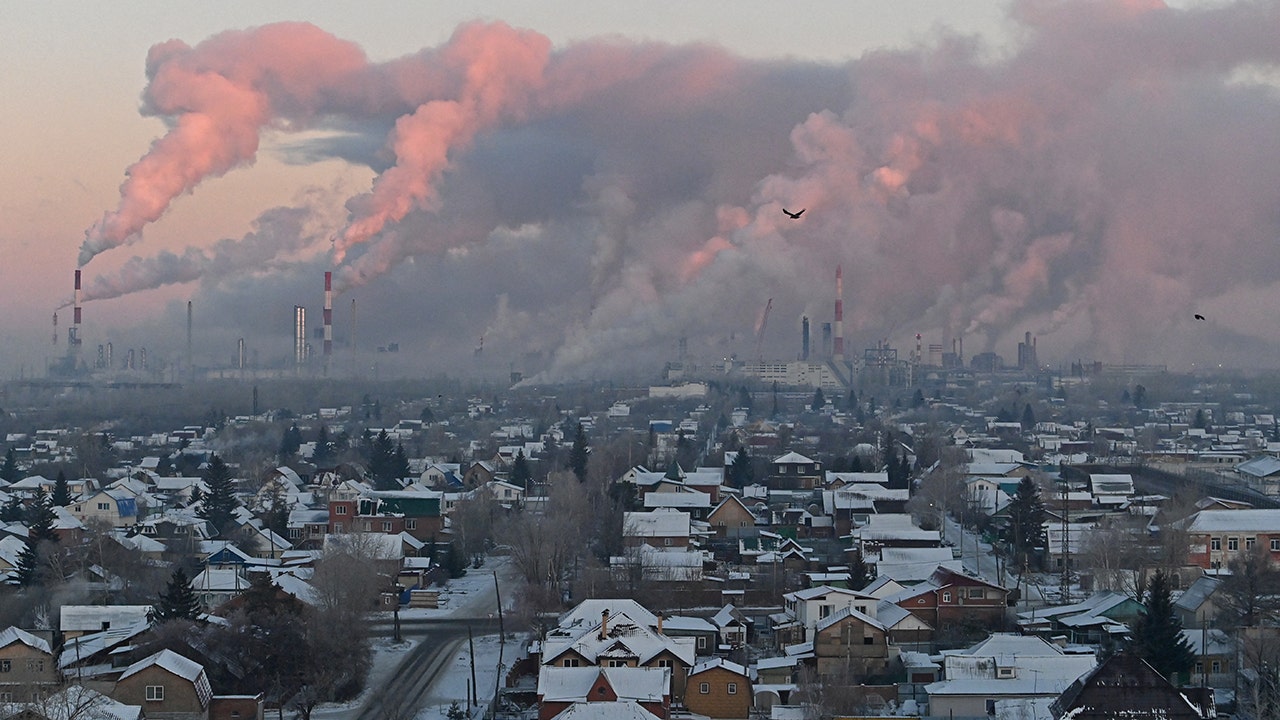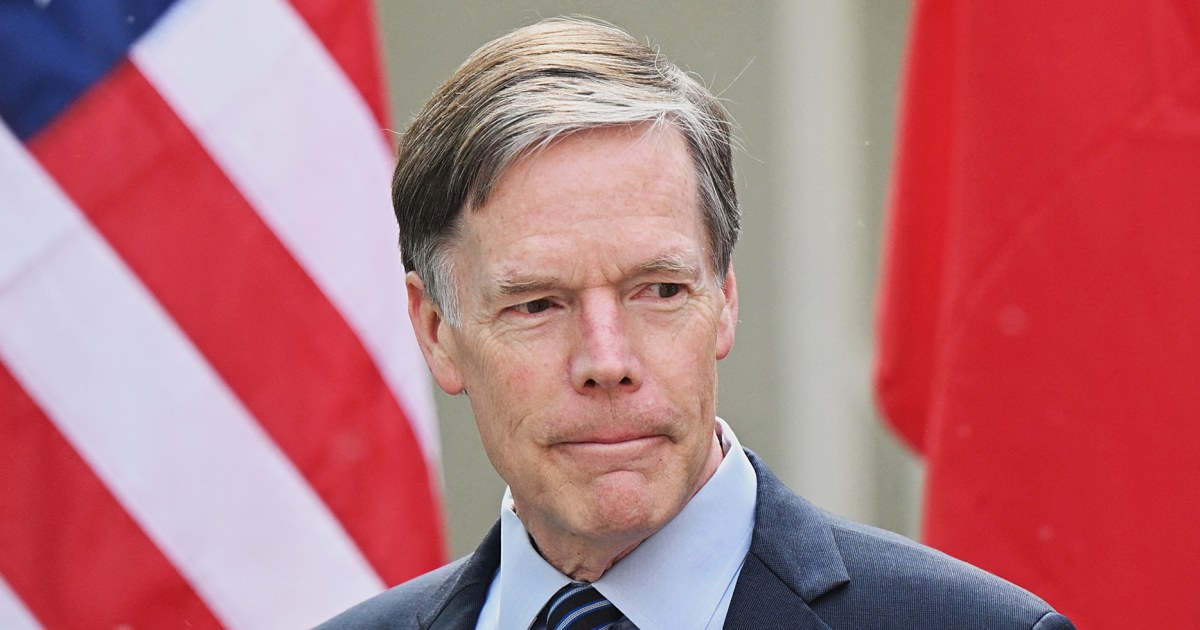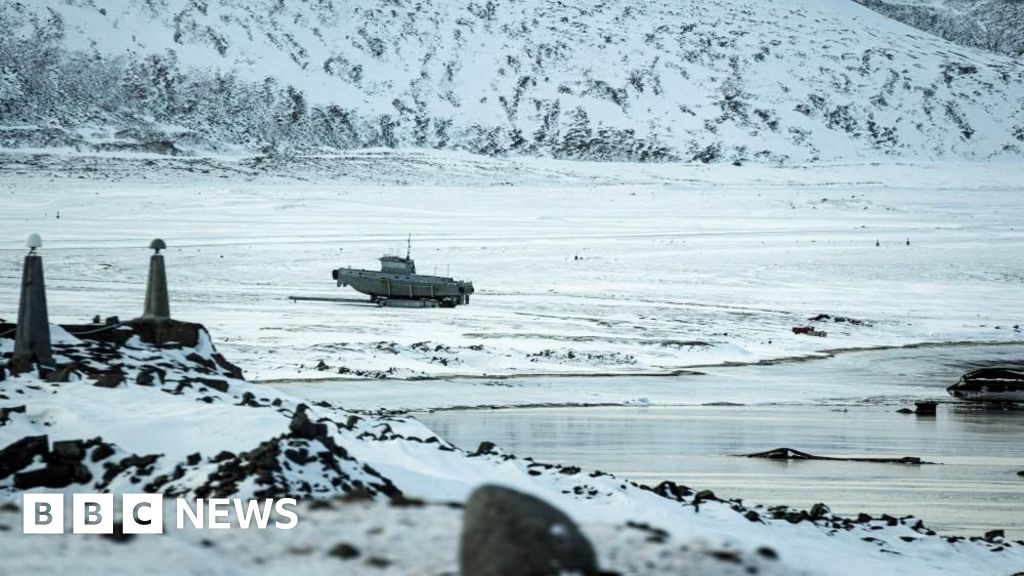World
‘Buy us!’: Greenlanders shocked, intrigued, bewildered by Trump zeal for Arctic territory
Polls over the last few decades have consistently shown the majority of Greenlanders want independence from Denmark for reasons connected to its dark, colonial past and persistent discrimination.
Trump won’t rule out using military to obtain Panama Canal, Greenland
U.S. President-elect Donald Trump declined to rule out military or economic action to have the United States take back certain territories.
Orla Joelsen wants to Make Greenland Great Again but is pretty sure ditching Denmark and allowing the Arctic territory to be annexed by a superpower is not the best way to go about it.
President-elect Donald Trump is not the first American leader to promote the idea of buying the U.S.’s strategically located northern neighbor, which is rich in minerals and oil, for security reasons. President Harry Truman offered $100 million − about $1.3 billion today − in gold bullion for the world’s largest island in the post-World War II era.
But Trump’s amplification this month of an idea he first floated in his first term, backed by his refusal to rule out using U.S. military power to achieve it, has left Greenlanders not only wondering if it’s a joke. It’s also left them worried, intrigued, excited, bewildered and everything in between.
“It’s shocked us,” Joelsen, a native Greenlander who works as a prison official in the island’s capital Nuuk, said by telephone. “We need to talk about the independence of Greenland from Denmark. But not like this.” Joelsen’s prisons job falls under the authority of Denmark’s justice department. He said he was speaking in a private capacity.
Funny and absurd. Then there was a big airplane with Trump’s name on it.
Christian Ulloriaq Jeppesen is a radio producer from Nuuk who lives in Denmark. He said when Trump initially proposed purchasing Greenland in 2019 it was something he, his friends and family found funny − even absurd.
“Then suddenly there was a big airplane with Trump’s name on it in Nuuk and people were walking around with MAGA hats on it and the whole thing got real,” he said by phone from Copenhagen. Trump’s eldest son landed in Nuuk on Tuesday and spent the day handing out red caps, filming a documentary and speaking to residents.
“I would say some Greenlanders are a bit concerned and scared about this,” Jeppesen said. “It’s also a little bit of a joke. It’s weird. I’m personally quite mad about the whole idea that someone thinks they can just buy a country.”
Trump wants Greenland. What to make of that?
So which is it? A staged joke or serious threat? Why does Trump appear to be so intent on taking control of a territory that’s been an established part of the Danish crown since 1830? And how rattled are Greenlanders and Danes about the possibility, real or remote, of Trump’s threats to acquire Greenland?
Aaja Chemnitz is one of two Greenlandic lawmakers who represents the 836,000-square-mile island’s 57,000 inhabitants in Denmark’s Folketing, its Parliament. As an autonomous territory of Denmark, Greenland has its own legislature, known as the Inatsisartut, with 31 seats. It’s a chamber that administers various internal affairs. Greenland’s defense, national security and financial policies remain the responsibility of Denmark and the Folketing.
On Thursday night, Chemnitz attended what she called an emergency “crisis meeting” in Copenhagen about Trump’s Greenland pitch with party leaders from across Denmark’s political spectrum. Greenland’s Prime Minister Mute Egede flew in on Wednesday to meet with Denmark’s Prime Minister Mette Frederiksen and King Frederik X.
“Some people in Greenland are a little startled by all the attention we’re getting globally,” Chemnitz said in a phone interview Friday. “A close dialogue between Greenland and Denmark is important right now. It’s also important to be very calm and think about how we can make a wise decision. It’s not a question of whether we should be Danish citizens or American citizens. It’s a question of how can we be Greenlanders and have a good Greenlandic future.”
The majority of Greenlanders are Inuit, an indigenous people who also live in Alaska and Canada. Greenlandic, the language they speak, is vastly different to Danish. Ulrik Pram Gad, a researcher at the Danish Institute for International Studies in Copenhagen, said the culture and traditions in Greenland are also highly distinct from what’s found in Denmark and Western Europe more generally. But he said many Greenlanders today are related to Danes through marriage, partnership or blood and that many go to Denmark for schooling, work and vacation. Most, he said, prize the Scandinavian country’s welfare state which gives them access to free education and healthcare.
However, Gad also said polls over the last few decades have consistently shown the majority of Greenlanders want independence from Denmark for reasons connected to its dark, colonial past and persistent discrimination, though there is division over the timing of it and concern over what it could mean for living conditions.
An independence movement in Greenland has nevertheless gained traction amid revelations that Danish doctors in the 1960s and 1970s fitted thousands of Inuit women and girls, often without their knowledge, with contraceptive devices as part of an involuntary birth control campaign. In the 1950s, Danish authorities separated Inuit children from their families as part of a social experiment where they were “reeducated” as “model” Danes.
“Greenlanders still feel today that they are treated unequally and not on their own terms,” said Gad, who worked in Nuuk for Greenland’s government before moving full-time into academic research.
“The Danish system feels like an imported system, with Danish terms and conditions, for a different culture.”
Greenlanders don’t want to be Americans or Danes
In a New Year’s speech, Greenland’s leader Egede said it was “about time we ourselves take a step and shape our future, also with regard to who we will cooperate closely with, and who our trading partners will be.”
Greenland’s “history and current conditions,” he said “have shown that our cooperation with the Kingdom of Denmark has not succeeded in creating full equality. It is now time for our country to take the next step.”
Yet it’s far from clear that most Greenlanders view that next step as being in sync with Trump’s ambitions.
Kalaallit Nunaata Radioa is Greenland’s national public broadcaster. When it canvassed Nuuk’s residents this week about Trump’s stated desire to purchase Greenland it found a few local voices, such as those of Karen Kielsen and Imaakka Boassen, who seemed interested in the idea of becoming part of the U.S.
“The U.S. is more attractive. Everything just gets more and more expensive here,” Kielsen, described by KNR as a cleaning assistant, said. Boassen, a student, said he didn’t “fully trust Danes. Maybe I will have more trust in Trump.”
Boassen expressed some disaffection with job prospects. “There are so many Danes in leading positions in Greenland, but when we live in Greenland, it should be Greenlanders who lead,” he said.
Others described Trump as “dangerous” and “worrying” and questioned whether he really had Greenland’s best interests at heart. “We are so few inhabitants,” said Jens Danielsen. “I fear our language would disappear very quickly (under the U.S.), so I would prefer to stay with Denmark.” Danielsen added he thinks the only reason Trump may be interested in Greenland is because he wants to extract its uranium and other raw materials.
Still, Gad, the researcher, said that if part of Trump’s motivation for wanting to buy Greenland is because he wants to wrench minerals from its frozen tundra he doesn’t need to purchase it in order to do that. He said companies, not governments, extract these resources and that Greenland’s authorities have long been open to approaches to American, Canadian, Australian and even Chinese firms who may want to open or run a mine there but none have worked out. He said Chinese investors nearly got one off the ground about a decade ago before it fizzled out.
“All a company needs to do is apply for a license,” said Gad.
In a recent interview, John Bolton, a former national security adviser in Trump’s first term, said that controlling Greenland would enable Washington to better protect its interests in the region − including critically important shipping lanes − against expansionist efforts by Russia and, more recently, China.
But Rasmus Jarlov, a Danish opposition Conservative lawmaker, said the two reasons mentioned by Trump and the people around him for his interest in Greenland − resources and national security − don’t really make any sense.
“Trump needs to understand he has no legitimate claim to Greenland, and also the difference between ‘yours’ and ‘mine’ and respect that,” Jarlov, a former minister of business affairs, said in a phone interview.
“With regards to the military argument, well, there are no big military threats against Greenland. Russia and China don’t have any aspirations to take it over. The only real threat is the United States. Denmark has a defense agreement with the U.S. The U.S. used to have a bigger military presence in Greenland,” he added, referring to when about 10,000 U.S. troops were stationed at a dozen bases scattered around Greenland’s coast.
Now, Pituffik Space Base, formerly known as Thule Air Base, is one of the most remote U.S. military assignments in the world. Built on permafrost in Greenland’s far north, it hosts about 200 troops.
“The U.S. voluntarily downgraded its Greenland military presence − itself,” said Jarlov. “If the Americans change their minds, and want a bigger presence, then by all means we’re more than open to that.”
Speaking at a joint press conference in Copenhagen on Friday with Frederiksen, Denmark’s prime minister, Greenland’s leader Egede said that he had not been in contact with Trump and urged everyone to respect Greenland’s wish for independence. He said Greenlanders did not want to be Americans or Danes.
‘Buy us! Buy Greenland!’
In Nuuk, prisons official Joelsen said he favors an independent Greenland so that it can pursue partnerships, economic and diplomatic, with other countries without having to seek approval from policymakers in Denmark.
“Part of the USA? No, no, I don’t want that,” he said. “I don’t really know about the culture there.”
Jeppesen, the radio producer, said when he moved to Copenhagen from Greenland in 2017 he experienced a lot of discrimination and he often felt he was the butt of a racist joke usually involving Greenlanders who drink too much. He said he’s tried to educate Danes about this but it’s an uphill battle. Jeppesen is 28. He said he hopes to eventually move back to Greenland once he has established himself more with his career.
“There’s a lot problems between Greenland and Denmark but I don’t see any benefit in becoming part of the U.S.”
One person who said he does is Timmy Zeeb, a Greenlander who is widely known in Nuuk for all the wrong reasons, according to Jeppesen and multiple Danish media reports. Zeeb is a local drug dealer with a long list of convictions for that activity and other crimes, some of them violent, stretching back many years.
He was featured in a video shared by Trump when he posted on his Truth Social media platform that he was hearing from his son in Nuuk “that the people of Greenland are ‘MAGA'” and that “Greenland is an incredible place, and the people will benefit tremendously if, and when, it becomes part of our Nation.”
Zeeb has a big bushy beard and is heavy-set. He had just come out of a store when he ran into members of Donald Trump Jr.’s entourage in Nuuk. They put a MAGA cap on his head, stuck a camera in his face and pressed record.
“Buy us! Buy Greenland!” he says in the 30-second video, in which he directly addresses the president-elect.
Zeeb then said “he loves America but people are too fat over there,” before sticking his tongue out and bursting into laughter. He later told Denmark’s state broadcaster that even those with a criminal past are entitled to an opinion.








